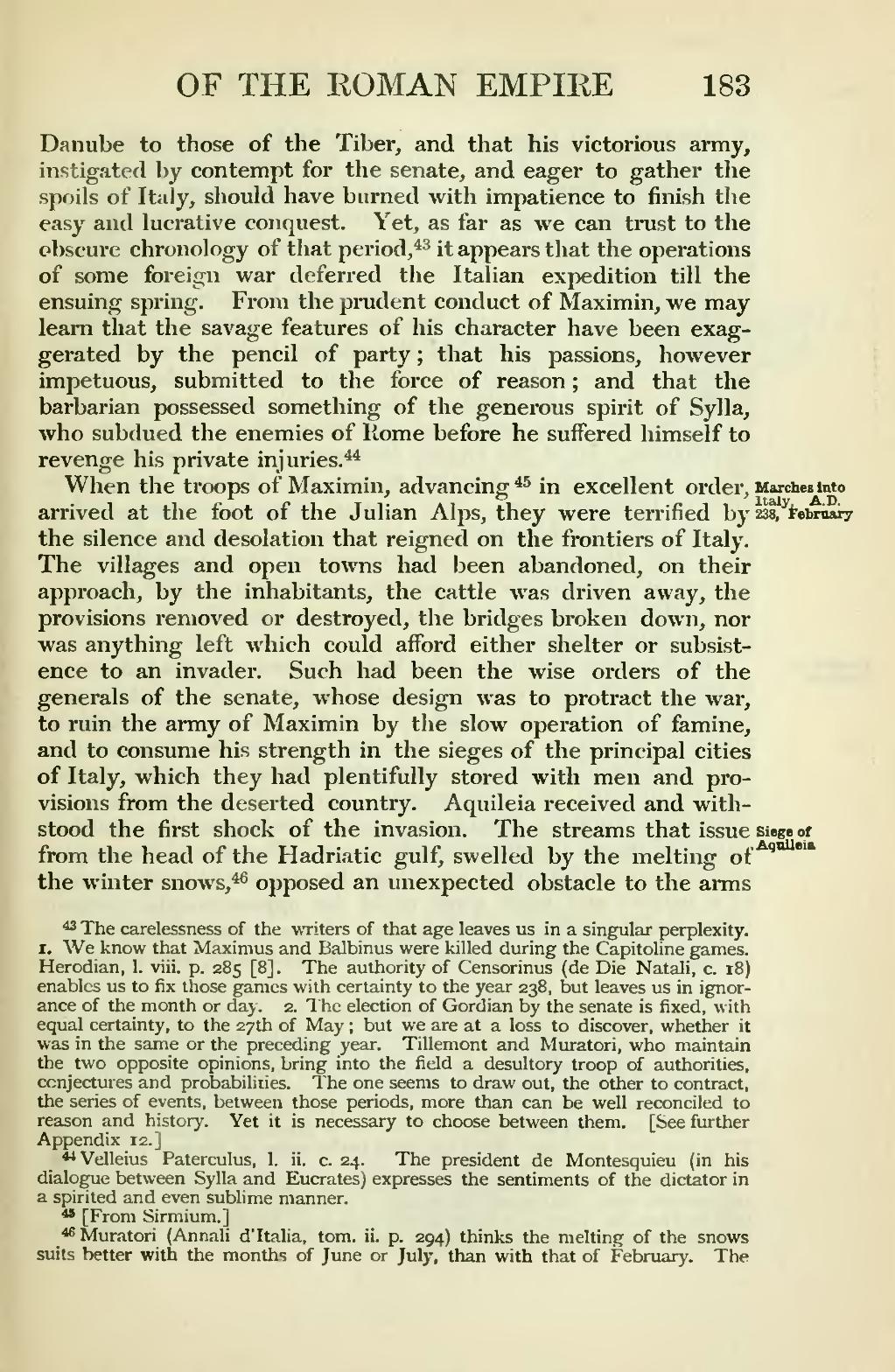Danube to those of the Tiber, and that his victorious army, instigated by contempt for the senate, and eager to gather the spoils of Italy, should have burned with impatience to finish the easy and lucrative conquest. Yet, as far as we can trust to the obscure chronology of that period,[1] it appears that the operations of some foreign war deferred the Italian expedition till the ensuing spring. From the prudent conduct of Maximin, we may learn that the savage features of his character have been exaggerated by the pencil of party; that his passions, however impetuous, submitted to the force of reason; and that the barbarian possessed something of the generous spirit of Sylla, who subdued the enemies of Rome before he suffered himself to revenge his private injuries.[2]
Marches into Italy, A.D. 238, February When the troops of Maximin, advancing[3] in excellent order, arrived at the foot of the Julian Alps, they were terrified by the silence and desolation that reigned on the frontiers of Italy. The villages and open towns had been abandoned, on their approach, by the inhabitants, the cattle was driven away, the provisions removed or destroyed, the bridges broken down, nor was anything left which could afford either shelter or subsistence to an invader. Such had been the wise orders of the generals of the senate, whose design was to protract the war, to ruin the army of Maximin by the slow operation of famine, and to consume his strength in the sieges of the principal cities of Italy, which they had plentifully stored with men and provisions from the deserted country. Aquileia received and withstood Siege of Aquileia the first shock of the invasion. The streams that issue from the head of the Hadriatic gulf, swelled by the melting of the winter snows,[4] opposed an unexpected obstacle to the arms- ↑ The carelessness of the writers of that age leaves us in a singular perplexity. 1. We know that Maximus and Balbinus were killed during the Capitoline games. Herodian, 1. viii. p. 285 [8]. The authority of Censorinus (de Die Natali, c. 18) enables us to fix those games with certainty to the year 238, but leaves us in ignorance of the month or day. 2. The election of Gordian by the senate is fixed, with equal certainty, to the 27th of May; but we are at a loss to discover, whether it was in the same or the preceding year. Tillemont and Muratori, who maintain the two opposite opinions, bring into the field a desultory troop of authorities, conjectures and probabilities. The one seems to draw out, the other to contract, the series of events, between those periods, more than can be well reconciled to reason and history. Yet it is necessary to choose between them. [See further Appendix 12.]
- ↑ Velleius Paterculus, 1. ii. c. 24. The president de Montesquieu (in his dialogue between Sylla and Eucrates) expresses the sentiments of the dictator in a spirited and even sublime manner.
- ↑ [From Sirmium.]
- ↑ Muratori (Annali d'ltalia, tom. ii. p. 294) thinks the melting of the snows suits better with the months of June or July, than with that of February. The
